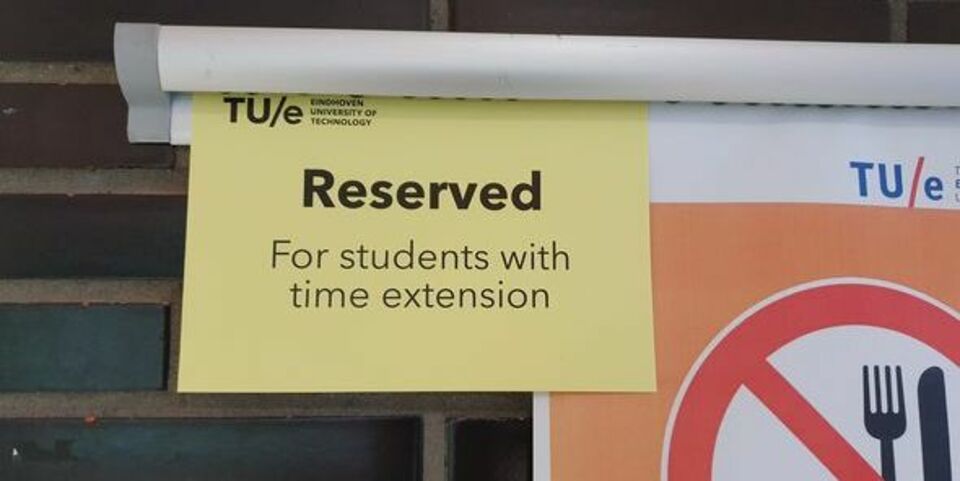Improvements for students with a disability
TU/e will be implementing improvements for students with a disability. The provision of information will be taken in hand and various measures, such as changes to exam provisions, will be introduced and streamlined. A planned pilot involving low-stimulus exam rooms has been delayed due to coronavirus.
“We are doing pretty well, and we are ready to help students whenever they need us, but our solutions are rather ad hoc.” This is policy officer Anneke Sikkema's summing up of the conclusions drawn by the ECIO, the national expert centre on inclusive education, which last year discussed the university's current provisions with a range of TU/e employees and students.
The policy on ‘Studying Plus’ was becoming outdated, which prompted TU/e to draw up proposals for improving provisions for students with a functional impairment. This resulted in a policy and implementation plan compiled by Sikkema and other TU/e employees. This has now been discussed in the various forums at the university.
The proposals relate mainly to communication and to bringing consistency to agreements made about provisions. At present, differences are sometimes evident between the solutions offered by programs as they aim to manage the same disability. “One thing we'll be doing is producing an infographic that shows students what schemes and initiatives are available and how they can apply for provisions. This isn't always clear at the moment,” says Sikkema. More and clearer information will also be provided in the study guide, on the TU/e website and during Open Days. Added to which, the roles and responsibilities of those involved, people such as lecturers, academic advisors and student counselors, will be clarified.
Easier discussion
Furthermore, those making these plans are keen to make it easier to discuss disabilities and for students to notify the university of their needs. “We do sometimes notice that students deliberately refrain from mentioning a disability, but unavoidably run into difficulties with their studies. We want to stop this from happening,” says Sikkema.
More uniformity will also be brought to the university's provisions. “At the moment, you sometimes find that one student is being allocated a low-stimulus room to sit an exam whereas another student with a similar disability and on a different program is not,” says Sikkema. Regrettably, the trial with preplanned quiet rooms was unable to go ahead in the third quartile due to the corona crisis.
In any event, this theme certainly deserves greater attention, Sikkema believes. “We want to appoint special-task employees. They will ensure this theme is discussed within the departments and TU/e services, and alert us to what can be improved. We have not yet decided who we are looking for to fill this role; the kind of people they should be and the positions they should have.”
The members of the University Council have previously discussed this plan and were positive about it and other ideas raised, especially the plan to launch a platform - ‘Students+’ - where students can swap their experiences and can enrich the university with their ideas. Concern was expressed, however, about the extra workload that all the plans may entail. “In principle, the plans fall within the ‘regular budget’ and the workload must be manageable at current staffing levels,” says Sikkema. “But we will look at whether employees have the scope to take on this work, and every year we will reassess the plans and the budget.”
Where possible, the quick wins will be introduced this year - and the other plans (such as the student platform) in the coming years.
Are you a TU/e student, do you have a disability, and would you like to share your thoughts on this policy and help shape it? If so, send an email to Anneke Sikkema.


Discussion